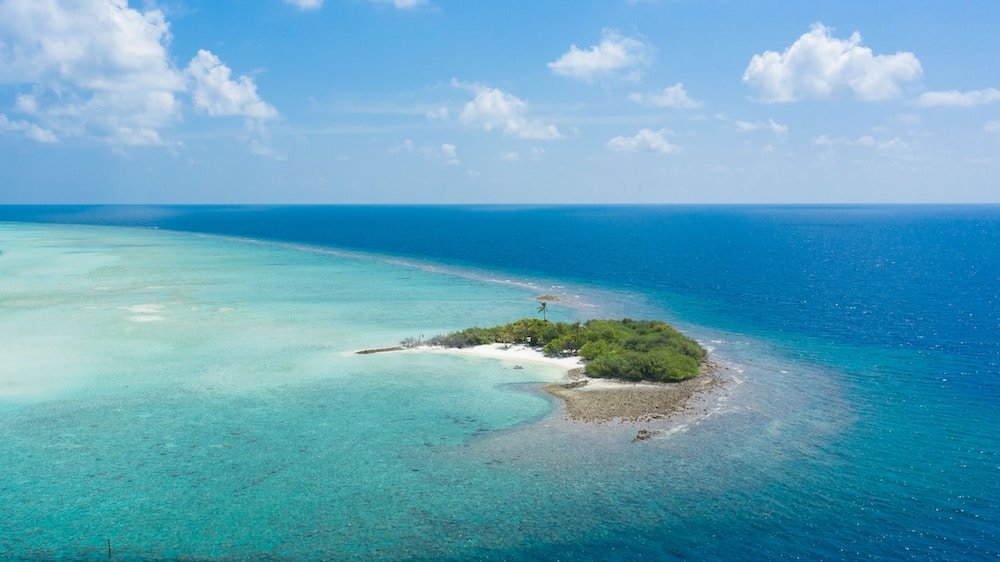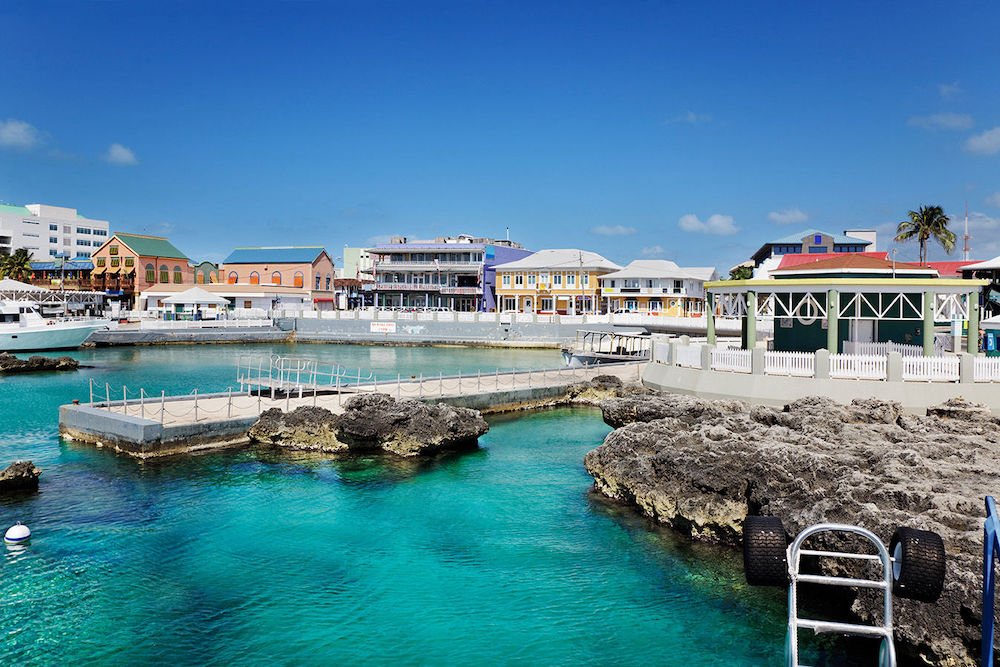
In the complex world of international finance, the term “tax havens” has become synonymous with strategic jurisdictions that offer favorable tax conditions to businesses and individuals.
Tax havens are regions or countries with low or zero tax rates, lenient financial regulations, and a robust financial infrastructure that attracts entities seeking to minimize their tax liabilities legally.
While tax havens can take various forms, the allure of island destinations as tax havens is particularly captivating. Islands, surrounded by serene landscapes and often nestled in paradisiacal settings, provide more than just a scenic backdrop for tax optimization.
Their appeal lies in a combination of factors, including confidentiality, financial privacy, and a stable legal framework that supports wealth management and business operations.
The geographical isolation offered by islands adds an extra layer of confidentiality, attracting businesses and high-net-worth individuals seeking discretion in their financial affairs.
The picturesque surroundings, coupled with the strategic benefits of favorable tax policies, create a unique synergy that makes island tax havens an attractive proposition for those navigating the complexities of global taxation.
This comprehensive article aims to delve into the intricacies of the 10 most popular island destinations that have gained prominence as tax havens.
Whether you are a seasoned financial professional or a curious reader seeking to unravel the mysteries of tax havens, this article endeavors to offer a detailed exploration of the subject, shedding light on the factors that contribute to the popularity of these island destinations and their role in the global financial ecosystem.
What Defines a Tax Haven?

Defining a tax haven involves a set of distinct criteria that position a jurisdiction as an attractive hub for those seeking favorable tax conditions.
Common characteristics include low or zero corporate tax rates, minimal personal income tax, and a lack of capital gains tax.
Additionally, tax havens often provide a level of financial secrecy, with stringent laws protecting the confidentiality of financial transactions and the identities of businesses and individuals.
To be considered a tax haven, a destination typically exhibits the following criteria:
- Low Tax Rates: A key hallmark is the presence of significantly lower tax rates compared to global averages, creating a competitive advantage for businesses and individuals.
- Financial Secrecy: Stringent laws and regulations that protect the privacy of financial transactions and account holders, offering a level of confidentiality that attracts those seeking to shield their financial affairs from public scrutiny.
- Absence of Exchange Controls: The absence of restrictions on the movement of capital across borders allows for seamless financial transactions and wealth management.
- Stable Legal Environment: A stable and reliable legal framework that supports business operations and provides a level of assurance for investors and entrepreneurs.
Legal and Regulatory Aspects
The legal and regulatory aspects of tax havens play a pivotal role in defining their status and appeal. These aspects include:
- Tax Legislation: The tax laws of a jurisdiction determine the rates and conditions under which businesses and individuals are taxed. Tax havens often enact legislation that favors financial optimization.
- Financial Regulations: The regulatory environment dictates the oversight of financial activities, ensuring a balance between facilitating economic growth and preventing illicit financial activities.
- Anti-Money Laundering (AML) Laws: Robust AML laws are essential for preventing tax havens from becoming hubs for money laundering and other illicit financial activities.
Economic Implications
The economic implications of tax havens extend beyond their borders, influencing global financial dynamics. Key economic considerations include:
- Foreign Direct Investment (FDI): Tax havens often attract substantial FDI due to their favorable tax conditions, contributing to economic growth and infrastructure development.
- Impact on Global Tax Revenue: The existence of tax havens can lead to revenue loss for other jurisdictions as businesses and individuals shift their activities to take advantage of lower tax rates.
- Wealth Management and Financial Services: The financial sector in tax havens thrives on providing specialized services such as wealth management, asset protection, and offshore banking, contributing to the local economy.
The Role of Islands as Tax Havens

The historical evolution of islands as tax havens is a fascinating journey that intertwines economic, geopolitical, and legal developments.
Historically, islands have served as strategic trading posts, and their role in global commerce laid the groundwork for their emergence as tax havens.
- Trade Routes and Commerce: Many islands were key points along historical trade routes, fostering economic activity and trade. This history contributed to the development of financial infrastructures that would later attract businesses seeking tax advantages.
- Colonial Influence: The influence of colonial powers played a significant role in shaping the legal and economic frameworks of many island nations. Some tax havens were former colonies, and the remnants of colonial-era laws and financial systems continue to influence their status as tax-efficient jurisdictions.
Why Islands Are Popular Choices
Islands, both large and small, have become popular choices for those seeking tax optimization due to a combination of unique factors that distinguish them from continental jurisdictions.
- Geographical Isolation: The geographical isolation of islands often provides an added layer of confidentiality. This isolation can contribute to a sense of financial privacy, attracting individuals and businesses looking to keep their financial affairs discreet.
- Attractive Lifestyle: Islands are often associated with picturesque landscapes and a desirable lifestyle. The combination of favorable tax conditions and a high quality of life makes these destinations appealing to high-net-worth individuals and corporations.
- Flexibility in Regulations: Island nations may have more flexibility in shaping their legal and regulatory frameworks. This adaptability allows them to respond to the evolving needs of the global financial community, making them agile in attracting international business.
Benefits and Drawbacks
The decision to use an island as a tax haven comes with a set of benefits and drawbacks that individuals and businesses carefully consider.
Benefits:
- Tax Optimization: The primary advantage is the ability to optimize taxes, potentially leading to significant savings for businesses and individuals.
- Financial Privacy: Islands often provide a level of financial privacy that may be challenging to achieve in more transparent jurisdictions.
- Stability and Security: Many island nations boast political stability and a secure environment, factors that are crucial for businesses and individuals managing assets.
Drawbacks:
- Reputational Risks: The use of tax havens, especially those on islands, may come with reputational risks. Critics argue that such jurisdictions facilitate tax evasion and financial opacity.
- Global Regulatory Scrutiny: Increased global scrutiny on tax havens has led to regulatory changes and international efforts to combat tax evasion. This can impact the long-term viability of using certain islands for tax optimization.
- Limited Economic Diversification: Some tax havens, especially smaller islands, may have economies heavily reliant on the financial sector. This lack of diversification can make them vulnerable to economic shocks.
1. Cayman Islands

The Cayman Islands, situated in the Caribbean, has emerged as a leading international financial center.
Its tax policies and regulations play a pivotal role in attracting businesses and individuals:
- Zero Direct Taxation: One of the key draws is the absence of direct taxes such as corporate tax, income tax, and capital gains tax, providing a favorable environment for businesses and investors.
- No Capital Gains Tax: The Cayman Islands’ tax regime does not impose capital gains tax, making it an attractive destination for those seeking to maximize returns on investments.
- Financial Services: With a robust legal framework and sophisticated financial services sector, the Cayman Islands facilitate a wide range of financial activities, including hedge funds, private equity, and banking.
Attractiveness to Businesses and Individuals:
The Cayman Islands’ appeal extends beyond its tax policies to other factors that make it an attractive destination for businesses and individuals:
- Political and Economic Stability: The jurisdiction boasts a stable political environment and a prosperous economy, contributing to investor confidence.
- Global Financial Hub: As a global financial hub, the Cayman Islands attract international businesses and high-net-worth individuals seeking a well-established and reputable financial center.
- Confidentiality: While complying with international standards for transparency, the Cayman Islands provide a level of financial privacy that appeals to those looking to protect their assets.
- Infrastructure: The islands offer modern infrastructure and amenities, enhancing the overall appeal for businesses and individuals seeking a comfortable living and working environment.
2. Bermuda

Bermuda, a North Atlantic archipelago renowned for its pink-sand beaches, has positioned itself as a significant tax haven with distinct tax policies and regulations:
- Zero Corporate Income Tax: Bermuda stands out for its lack of corporate income tax, making it an appealing destination for businesses seeking to minimize their tax burden.
- No Capital Gains Tax: Similar to the Cayman Islands, Bermuda does not impose capital gains tax, providing an advantageous environment for investors.
- Territorial Tax System: Bermuda operates on a territorial tax system, meaning that businesses and individuals are taxed only on income earned within the jurisdiction, further enhancing its attractiveness.
Attractiveness to Businesses and Individuals:
Bermuda’s appeal extends beyond its tax policies, encompassing various factors that make it an attractive destination for businesses and individuals:
- Global Business Presence: Bermuda has a well-established international business sector, particularly in insurance and reinsurance. The jurisdiction’s reputation as a global financial center attracts companies seeking a stable and well-regulated environment.
- Strategic Location: Situated in close proximity to major financial centers, Bermuda’s strategic location makes it convenient for businesses with global operations.
- High-Quality Infrastructure: Bermuda boasts modern infrastructure and a well-developed financial services industry, supporting the needs of businesses and individuals looking for a sophisticated environment.
- Legal Framework: The jurisdiction maintains a sound legal framework that provides a stable and secure environment for conducting business and managing assets.
3. Jersey

Situated in the English Channel, Jersey is a self-governing dependency of the United Kingdom and has become a notable island tax haven with its unique tax policies and regulations:
- Zero Corporate Income Tax: Jersey’s appeal is heightened by its lack of corporate income tax, making it an attractive jurisdiction for businesses seeking to optimize their tax liabilities.
- No Capital Gains Tax: Similar to other popular tax havens, Jersey does not impose capital gains tax, providing an advantageous environment for investors.
- Goods and Services Tax (GST): While Jersey does have a Goods and Services Tax, it does not apply to many financial and business services, further enhancing its appeal.
Attractiveness to Businesses and Individuals:
Jersey’s allure extends beyond its tax policies, encompassing various factors that make it an attractive destination for businesses and individuals:
- Financial Services Hub: Jersey has developed a robust financial services sector, with a focus on wealth management, fund administration, and banking. This specialization attracts businesses and individuals in need of financial expertise.
- Political Stability: The jurisdiction benefits from political stability and a legal system based on English common law, providing a reliable and secure environment for conducting business.
- Global Connectivity: Jersey’s proximity to the UK and Europe, combined with modern transportation and communication infrastructure, makes it well-connected globally.
- High-Quality of Life: The island offers a high quality of life, featuring a pleasant climate, scenic landscapes, and a range of amenities, making it an attractive destination for individuals seeking both professional opportunities and a desirable living environment.
4. Isle of Man

Situated in the Irish Sea, the Isle of Man is a self-governing British Crown Dependency with a distinct tax regime that contributes to its status as a tax haven:
- Zero Corporate Income Tax: The Isle of Man does not impose corporate income tax on profits, a feature that attracts businesses seeking a favorable tax environment.
- No Capital Gains Tax: Similar to other popular tax havens, the Isle of Man does not levy capital gains tax, offering an advantageous setting for investors.
- Low Personal Income Tax: While there is a personal income tax, the rates are relatively low, contributing to the appeal for individuals.
Attractiveness to Businesses and Individuals:
The Isle of Man’s attractiveness extends beyond its tax policies, encompassing various factors that make it a sought-after destination for businesses and individuals:
- Diversified Economy: The Isle of Man has a diversified economy, with strengths in sectors such as finance, e-gaming, and aviation. This diversification contributes to economic stability.
- Proximity to the UK: The jurisdiction’s proximity to the UK facilitates easy business and trade relations, making it convenient for companies with connections to the British market.
- Robust Financial Services Sector: The Isle of Man has a well-developed financial services sector, offering services such as offshore banking, wealth management, and corporate services.
- High-Quality of Life: The island provides a high quality of life, with scenic landscapes, modern amenities, and a strong sense of community, making it an attractive place for individuals seeking a balanced lifestyle.
5. Bahamas

The Bahamas, an archipelago in the Atlantic Ocean, is renowned for its pristine beaches and has positioned itself as a tax haven with specific tax policies and regulations:
- Zero Corporate Income Tax: The Bahamas does not impose corporate income tax on profits earned, providing a significant incentive for businesses seeking a low-tax environment.
- No Capital Gains Tax: Similar to other popular tax havens, the Bahamas does not levy capital gains tax, enhancing its appeal to investors.
- No Personal Income Tax: The absence of personal income tax makes the Bahamas particularly attractive to individuals seeking to preserve their income.
Attractiveness to Businesses and Individuals:
The Bahamas’ allure extends beyond its tax policies, encompassing various factors that make it an attractive destination for businesses and individuals:
- Tourism and Hospitality Sector: The Bahamas is a global tourist destination, and its thriving tourism and hospitality sector contribute to economic vibrancy.
- Financial Services Hub: The jurisdiction has a growing financial services sector, attracting offshore banking, investment, and wealth management activities.
- Political and Economic Stability: Political stability and a well-established legal system based on English common law provide a secure environment for businesses and individuals.
- Geographical Appeal: The Bahamas’ natural beauty, warm climate, and idyllic surroundings contribute to its desirability as a location for both professional and personal pursuits.
6. Mauritius

Mauritius, situated in the Indian Ocean, has emerged as a key player in the global financial landscape, offering specific tax policies and regulations that contribute to its appeal as a tax haven:
- Low Corporate Tax: While there is a corporate tax in Mauritius, the rate is relatively low, making it attractive for businesses looking to optimize their tax liabilities.
- No Capital Gains Tax: Mauritius does not impose capital gains tax, providing an advantageous environment for investors involved in mergers, acquisitions, and investment activities.
- Double Taxation Treaties: Mauritius has an extensive network of double taxation treaties, fostering international business by providing relief from double taxation and promoting cross-border trade and investment.
Attractiveness to Businesses and Individuals:
Mauritius’ appeal extends beyond its tax policies, encompassing various factors that make it a sought-after destination for businesses and individuals:
- Gateway to Africa: Mauritius serves as a gateway to Africa, attracting businesses looking to establish a presence on the continent due to its strategic location and business-friendly environment.
- Financial Services Hub: The jurisdiction has developed a robust financial services sector, offering services such as offshore banking, fund management, and global business activities.
- Political Stability: Mauritius boasts political stability and a transparent legal system based on English and French law, providing a secure environment for businesses and investors.
- Multicultural Environment: The diverse and multicultural nature of Mauritius contributes to a welcoming atmosphere, appealing to individuals seeking both professional opportunities and a rich cultural experience.
7. Malta

Malta, a Mediterranean archipelago, has positioned itself as a prominent player in the international financial arena, offering specific tax policies and regulations:
- Low Corporate Tax Rate: Malta’s corporate tax rate is relatively low, making it an attractive jurisdiction for businesses looking to optimize their tax liabilities.
- Participation Exemption: Malta provides a participation exemption, which means that dividends and capital gains derived from qualifying holdings may be exempt from tax.
- Double Taxation Treaties: Malta has an extensive network of double taxation treaties, providing relief from double taxation and enhancing its appeal for international businesses.
Attractiveness to Businesses and Individuals:
Malta’s allure extends beyond its tax policies, encompassing various factors that make it a sought-after destination for businesses and individuals:
- EU Membership: Malta is a member of the European Union, offering businesses access to the EU market and regulatory framework.
- Booming Financial Services Sector: The jurisdiction has a well-established financial services sector, including banking, insurance, and fund management, contributing to its status as a financial hub.
- English-Speaking Population: The widespread use of English in Malta makes it an attractive location for businesses and individuals seeking a language-friendly environment.
- Strategic Location: Malta’s strategic location in the Mediterranean enhances its appeal for businesses involved in trade and commerce.
8. Barbados

Barbados, a Caribbean island nation, has become a notable tax haven with specific tax policies and regulations that contribute to its appeal:
- Low Corporate Tax Rates: Barbados offers low corporate tax rates, making it an attractive destination for businesses looking to minimize their tax liabilities.
- Double Taxation Treaties: Barbados has an extensive network of double taxation treaties, providing relief from double taxation and promoting international trade and investment.
- Global Business and International Companies Act: Barbados has specific legislation, such as the Global Business and International Companies Act, which facilitates the establishment and operation of international businesses.
Attractiveness to Businesses and Individuals:
Barbados’ allure extends beyond its tax policies, encompassing various factors that make it a sought-after destination for businesses and individuals:
- Stable Political Environment: Barbados boasts a stable political environment, providing a secure and reliable backdrop for business operations and investments.
- Strategic Location: Its location in the Caribbean makes Barbados a strategic gateway for businesses looking to tap into the markets of the Americas.
- Diverse Economy: Barbados has a diverse economy with strengths in sectors such as tourism, financial services, and international business, contributing to economic stability.
- Quality of Life: The island offers a high quality of life, featuring beautiful beaches, a tropical climate, and a vibrant cultural scene, making it appealing to individuals seeking both professional opportunities and a desirable lifestyle.
9. British Virgin Islands

The British Virgin Islands (BVI), a British Overseas Territory in the Caribbean, has established itself as a leading offshore financial center with specific tax policies and regulations:
- Zero Corporate Income Tax: One of the key features of the BVI is the absence of corporate income tax, making it an attractive jurisdiction for businesses seeking to minimize their tax burdens.
- No Capital Gains Tax: Similar to other popular tax havens, the BVI does not impose capital gains tax, providing a favorable environment for investors.
- Confidentiality Laws: The BVI has laws in place to protect the confidentiality of financial transactions and the identities of businesses and individuals, enhancing its appeal for those seeking privacy.
Attractiveness to Businesses and Individuals:
The British Virgin Islands’ allure extends beyond its tax policies, encompassing various factors that make it a sought-after destination for businesses and individuals:
- Stable Legal Environment: The BVI operates under a legal system based on English common law, providing a stable and familiar legal framework for businesses and investors.
- Global Business Hub: The BVI is a hub for international business and offshore financial services, offering a range of services such as offshore banking, company formation, and trust services.
- Ease of Doing Business: The jurisdiction is known for its business-friendly environment, with simplified regulations and efficient processes for company incorporation and financial transactions.
- Scenic Beauty: The British Virgin Islands’ natural beauty, with pristine beaches and a tropical climate, adds to its appeal for individuals seeking a desirable living environment.
10. Seychelles

Seychelles, an archipelago in the Indian Ocean, has become an increasingly recognized destination for international business with specific tax policies and regulations:
- Low Corporate Tax Rates: Seychelles offers low corporate tax rates, making it an attractive jurisdiction for businesses looking to establish a tax-efficient presence.
- No Capital Gains Tax: Similar to other popular tax havens, Seychelles does not impose capital gains tax, providing a favorable environment for investors and businesses engaged in asset transactions.
- Territorial Tax System: Seychelles operates on a territorial tax system, where income earned outside the jurisdiction is generally not subject to local taxation.
Attractiveness to Businesses and Individuals:
Seychelles’ allure extends beyond its tax policies, encompassing various factors that make it a sought-after destination for businesses and individuals:
- Strategic Location: Positioned in proximity to major markets in Africa, Asia, and the Middle East, Seychelles serves as a strategic location for businesses involved in global trade.
- Economic Stability: Seychelles has experienced economic stability in recent years, providing a reliable environment for businesses and investors.
- Tourism and Hospitality: The thriving tourism industry contributes to Seychelles’ appeal, attracting individuals seeking both business opportunities and a picturesque lifestyle.
- Ease of Doing Business: Seychelles has made efforts to streamline its business environment, providing ease of doing business for companies and entrepreneurs.
Conclusion
the 10 most popular island tax havens, ranging from the Cayman Islands to Seychelles, present a fascinating tapestry of opportunities for businesses and individuals seeking favorable tax environments.
Each destination distinguishes itself through a combination of advantageous tax policies, global connectivity, thriving financial services sectors, and an appealing quality of life.
As we summarize the key points, it becomes evident that these jurisdictions offer more than just tax advantages—they provide strategic gateways for international business, stability in legal frameworks, and a scenic lifestyle.
Looking ahead, the future of tax havens is likely to witness increased regulatory scrutiny and potential shifts in global tax paradigms.
Governments worldwide are collaborating to address concerns related to tax evasion, emphasizing the importance of vigilance and compliance in navigating the evolving international tax landscape.

FAQ’s About Tax Havens
What is a famous tax haven?
Switzerland is often considered a famous tax haven.
Renowned for its banking secrecy, stability, and favorable tax conditions, Switzerland has historically attracted individuals and businesses seeking to optimize their tax positions.
What does havens mean in tax?
In the context of tax, a “haven” refers to a jurisdiction or country with favorable tax policies and regulations.
Tax havens typically offer low or zero tax rates, financial privacy, and other incentives to attract businesses and individuals seeking to minimize their tax liabilities.
What are the top 10 tax haven countries?
The top 10 tax haven countries can vary based on different criteria and individual preferences.
However, some commonly recognized tax havens include the Cayman Islands, Bermuda, Jersey, Isle of Man, Bahamas, Mauritius, Malta, Barbados, British Virgin Islands, and Seychelles.





